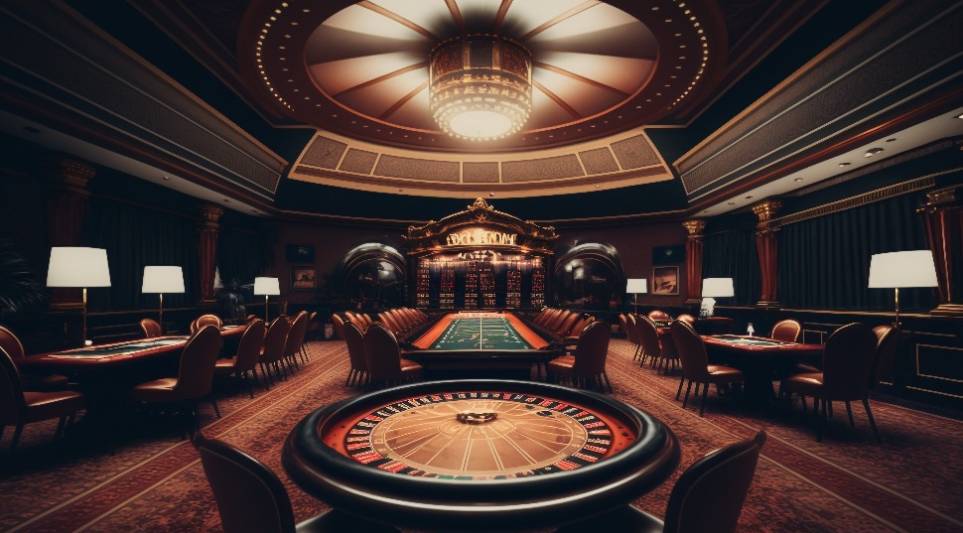Are Video Games in Casinos Manipulated?

Anyone who has ever played at a casino—whether it’s online or in a physical location—has probably asked themselves at some point, “Are these games rigged?” It’s a fair question, especially when you’ve lost money that you worked hard to earn. Naturally, you want to be sure the casino is legitimate and that you weren’t cheated.

So, are casino games really rigged?
In this article, we’ll dig into this question, explain what “rigged” actually means, how casinos make money, and how you can ensure you’re playing fairly. First things first, let’s clarify what we mean when we say something is “rigged.”
Are Casino Games Rigged?
This question isn’t as straightforward as it might seem. On the surface, yes, all casino games are designed to favor the house. We’ve all heard the phrase “the house always wins,” and it’s true—casinos have a built-in advantage in every game they offer. But just because the casino has a mathematical edge doesn’t mean the games are rigged in a dishonest way.
For me, as long as a casino clearly states the rules and follows them exactly, the game isn’t rigged. However, if the casino manipulates the game’s rules without transparency, then we can start questioning whether the game is fair.
Physical Casinos: Examples of Rigging
In a brick-and-mortar casino, rigging a game would look like this: imagine you’re playing blackjack, but the casino removes some aces from the deck to reduce your chances of hitting blackjack. Or think about a craps game where the dice are tampered with, making the outcome of the rolls less random.
If a casino doesn’t clearly display the payouts for its games—whether on a table game’s layout or in a slot machine’s options menu—that’s a red flag. In these cases, it might suggest that the casino is trying to hide something, and you should be cautious.
Online Casinos: How to Spot Rigging
When it comes to online casinos, a game could be considered rigged if the random number generator (RNG) isn’t truly random. Additionally, if an online casino doesn’t pay out winnings promptly or accurately, that’s another major cause for concern.
Some players might suspect a game is rigged simply because one game seems to take more of their money than another. But that’s not necessarily the case. Each game is designed with a specific house edge in mind. For example, blackjack typically has a lower house edge than slot machines, and slot machines have a lower edge than keno. Just because a game is designed to hold more of your money doesn’t mean it’s rigged—it’s simply part of how the game is structured.
How Do Casinos Make Their Money?
Now that we’ve touched on the idea of a house edge, let’s dig deeper into how casinos actually make money. Every game has a built-in “hold,” or house edge, that ensures the casino profits over time. This concept often confuses people because it’s tied to what mathematicians call the “law of large numbers.”
Casinos handle massive amounts of bets, whereas gamblers don’t. While the casino might lose on a single bet or a series of bets, over the long run, the house edge ensures they come out ahead. Players, on the other hand, are dealing with far fewer bets, so they experience more variance in the short term. But given enough time and enough plays, the casino will always win.
Why Do Online Casinos Offer Such Huge Welcome Bonuses?
If you’ve looked into how casinos make money, you’ve probably come across the term “casino hold.” However, you might not be as familiar with the term “return to player percentage,” or RTP.
What Is RTP?
RTP, or return to player percentage, is the amount of money a specific game is designed to pay back to players over time. For example, in Nevada, slot machines must have a minimum RTP of 85%. This means that every $100 wagered on the machine will return $85 to players over time, with the casino keeping the remaining $15.
Think of RTP as the inverse of the house edge: while the house edge tells you how much the casino expects to keep, the RTP tells you how much the game is likely to return to players.
Conclusion: Are Casino Games Fair?
In summary, while all casino games have a built-in advantage for the house, that doesn’t mean they are rigged in the sense that players are being cheated. Casinos make their money through the mathematical structure of the games, not by rigging the outcomes. As long as the rules are transparent and followed, you can be confident that the games are fair. However, if you notice anything suspicious—like unclear payout information or games that don’t seem to function as they should—it’s always a good idea to proceed with caution.
FAQs
1. Are online casino games rigged?
Not if you’re playing at a reputable, regulated casino. These casinos use RNGs to ensure fair play. However, it’s important to avoid unlicensed sites, as they may not follow the same standards.
2. What does it mean when a casino has a “house edge”?
The house edge refers to the built-in mathematical advantage the casino has in any game. It ensures the casino will make money in the long run.
3. Can I win at casino games in the short term?
Yes, it’s possible to win in the short term. However, over time, the house edge ensures that the casino will win more often than the players.
4. What is the RTP in a casino game?
RTP stands for return to player percentage, which is the amount of money a game will return to players over time. For example, a slot machine with a 95% RTP will return $95 for every $100 wagered over a long period.
5. How can I tell if a casino game is fair?
Look for clear rules, transparent payout information, and reviews of the casino’s reputation. Licensed casinos are regularly audited to ensure fairness.
